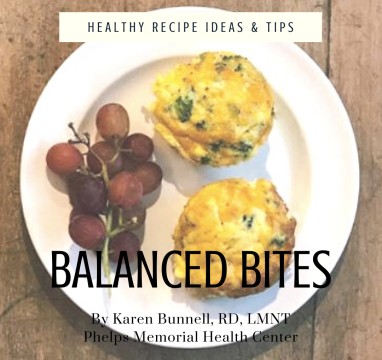When we think of Easter, the food that comes to mind is an egg. Eggs have gotten a bad rap over the years. A lot of people avoid them altogether due to their cholesterol level. However, they now feel that they have so many beneficial nutrients that the good outweighs the bad.
Here are a few tips to ensure good food safety when it comes to handling eggs:
- Store eggs in their original carton in the refrigerator, not on the door. Place them in the coldest part of the refrigerator. For best quality, use the eggs within 3 – 5 weeks of the date you purchase them. The sell by date will usually expire during that length of time, but they are perfectly safe to eat.
- Always wash your hands before and after handling raw eggs. Be sure to cook eggs thoroughly before eating them. Do not eat raw or undercooked eggs, as they have the potential of giving you salmonella. Egg dishes should be cooked to an internal temperature of 160 degrees.
- To help prevent the greenish-gray ring in hard cooked eggs, avoid too high of heat and overcooking the eggs. Also, cool the eggs immediately in cold water till they are completely cooled. The ring is not harmful even though it isn’t very attractive.
One large egg will provide you with approximately 80 calories. They each contain at least 6 grams of high biological protein. They also are naturally rich in Vitamins B 2, B 12, Vitamin D, selenium and iodine, as well as folate, biotin, pantothenic acid and choline. An egg has about 5 grams of fat; however, 2/3 of it is unsaturated. All of the fat is found in the yolk.
So remember, eggs are very nutrient dense food that supplies you with many vitamins and minerals, plus it tastes good!
Egg Muffins
Yield: 6-8 muffins
Ingredients:
6 eggs
1 teaspoon salt
1 teaspoon pepper
¼ cup low fat milk
1 cup shredded cheddar cheese
1 cup broccoli florets, gently rubbed under cold running water
Directions:
1. Wash hands with soap and water.
2. Crack eggs into a mixing bowl. Wash hands with soap and water after handling raw eggs.
3. To the eggs add salt, pepper, and milk. Whisk together.
4. Add broccoli and cheese. Stir to combine.
5. Grease muffin tin with cooking spray or preferred method.
6. Pour egg mixture into a greased muffin tin, 2⁄3 full.
7. Bake at 375°F for 18-20 minutes until eggs are completely set or reach an internal temperature of 160°F.
8. Store leftovers in a sealed container in the refrigerator.
Notes:
Want to include some grains with your egg muffin? Cut your muffin in half and wrap in a whole-grain tortilla for a portable, grab-and-go breakfast.
Nutrition Information:
- Calories 160
- Total Fat 11g
- Saturated Fat 5g
- Cholesterol 205mg
- Sodium 600mg
- Total Carbohydrates 3g
- Fiber 0g
- Total Sugars 0g, includes 0g Added Sugars
- Protein 11g
- Vitamin D 6%
- Calcium 15%
- Iron 6%
- Potassium 4%
Source: University of Nebraska-Lincoln Extension, https://food.unl.edu/recipe/egg-muffins



